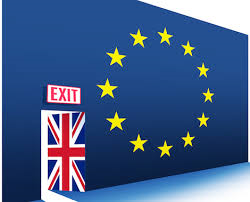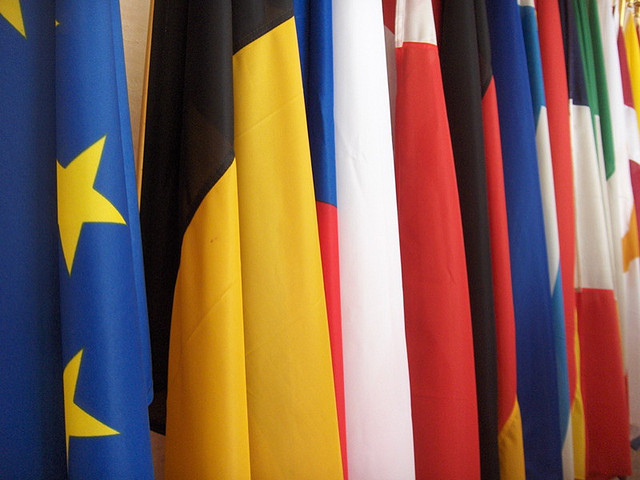Blog Archive

Better mutual recognition for better results on asset recovery: A new Commission’s proposal
 Just before Christmas, with the objective of further enabling Member States to deprive criminals of their illicit gain, the EU Commission proposed the adoption of an(other) instrument in the field of freezing and confiscation of assets deriving from criminal offences.
Just before Christmas, with the objective of further enabling Member States to deprive criminals of their illicit gain, the EU Commission proposed the adoption of an(other) instrument in the field of freezing and confiscation of assets deriving from criminal offences.
Due also to obligations under international and EU law, asset recovery laws and strategies – in particular against organised crime – have been increasingly adopted by contemporary criminal justice systems. Attacking criminal wealth has, indeed, a strong preventive and strategic dimension: focusing on the property of criminal organisations, for example, helps law enforcement authorities reach through their top, and it gives more tools to neutralise and dismantle them. The idea that asset recovery is essential to tackle these organisations has been lately coupled with the conviction that it is helpful against terrorism, too. The Commission proposal was indeed announced at the beginning of 2016 with the ‘Action Plan for strengthening the fight against terrorist financing’.
Read more
EU citizenship: a slipping anchor to hold on to rights? Brexit and the consequences for EU citizens with British nationality
 This summer many European citizens woke up in shock. Whilst reading the newspaper, listening to the radio, scrolling on Facebook, having breakfast, we learnt that a small majority of the voters in the Brexit referendum voted to leave the European Union. Not only does the (potential) Brexit have consequences for the internal market and the economic and social rights of EU citizens, but it also threatens their status as such. This is shocking for EU citizens with the nationality of another Member State residing in the United Kingdom, because their status will be redefined. For instance, in the future they will no longer be able to rely on equal treatment based on EU citizenship in the United Kingdom. Possibly even more shocked were British nationals, who might now actually lose their status as EU citizens, either living in the United Kingdom or elsewhere in the European Union. This will significantly impact their possibilities to work, study, and take up residence in another EU Member State.
This summer many European citizens woke up in shock. Whilst reading the newspaper, listening to the radio, scrolling on Facebook, having breakfast, we learnt that a small majority of the voters in the Brexit referendum voted to leave the European Union. Not only does the (potential) Brexit have consequences for the internal market and the economic and social rights of EU citizens, but it also threatens their status as such. This is shocking for EU citizens with the nationality of another Member State residing in the United Kingdom, because their status will be redefined. For instance, in the future they will no longer be able to rely on equal treatment based on EU citizenship in the United Kingdom. Possibly even more shocked were British nationals, who might now actually lose their status as EU citizens, either living in the United Kingdom or elsewhere in the European Union. This will significantly impact their possibilities to work, study, and take up residence in another EU Member State.

Verkiezingen 2017: staat de aanbesteding op de kaart?
 Door Willem Janssen & Laura de Vries
Door Willem Janssen & Laura de Vries
Op 15 maart 2017 gaat Nederland naar de stembus. Het beloven interessante Tweede Kamerverkiezingen te worden. De economie, werkgelegenheid, immigratie en EU zullen daarin waarschijnlijk een belangrijke rol gaan spelen. Dit blijkt ook uit de – veelal erg lijvige – verkiezingsprogramma’s van politieke partijen. Ook aanbestedingen komen daarin met regelmaat terug. In deze bijdrage geven wij een overzicht van de standpunten en voorstellen met betrekking tot aanbestedingen. Wij beperken ons tot de verkiezingsprogramma’s van partijen die in de recentelijke peiling van Ipsos het grootste waren (50plus, CDA, ChristenUnie, D66, GroenLinks, PvdA, PvdD, PVV, SGP, SP, VVD).
Read more
Rem tegen EU-bevoegdheidsoverdracht: drie bezwaren tegen het SGP-plan

Copyright: Tristan Sprarks
De SGP wil de EU beter in de teugels houden. Daarom vindt de partij dat belangrijke wijzigingen van de EU-verdragen in het vervolg alleen met een 2/3 meerderheid in beide kamers van onze Staten-Generaal aangenomen kunnen worden. Het gaat de SGP vooral om verdragen waarin nieuwe bevoegdheden aan de EU worden overgedragen (maar bijvoorbeeld ook de toetreding van nieuwe lidstaten). Of het nodig is om de EU meer in de teugels te houden is vooral een politieke vraag. Echter, ook – en zelfs: juist – als het antwoord op die vraag “ja” is, dan is het plan van de SGP om drie redenen een slecht idee.
Read more
The Polisario Front Judgment of the EU Court of Justice: a Reset of EU-Morocco Trade Relations in the Offing

Credit: Katarina Dzurekova (CC BY)
On 21 December 2016, the Court of Justice of the EU (CJEU) gave its appeals judgment in the politically contentious Polisario Front case. The Court overruled an earlier decision of the General Court (GC, 2015) and decided that the EU-Morocco trade agreement does not apply to the territory of Western Sahara, which is claimed by Morocco as its own (see Sandra Hummelbrunner and Anne-Carlijn Prickartz’s analysis). The Court then went on to dismiss the action for annulment brought against the EU Council decision endorsing the agreement by the Polisario Front, a national liberation movement representing the Saharawi population indigenous to Western Sahara. In so doing, the Court largely followed Advocate General Wathelet’s advisory opinion, at least its first part (see on this Katharine Fortin’s analysis over at the UCall blog). The dismissal of the Polisario Front’s action may appear to be a victory for the EU Council and Morocco. However, in a manner reminiscent of Pyrrhus’s battles with the Romans in the 3rd century BC, it may well turn out to be a loss, and in fact a boon for the Saharawi. Although the CJEU held that the Front did not have standing to dispute the EU Council decision, this determination precisely followed from the Court’s recognition of the people of Western Sahara’s right to self-determination and the attendant exclusion of the territory from the trade agreement. Henceforth, the EU Council and Morocco have no other choice than to exclude products from Western Sahara from their trade agreements.
Read more
How Failing Aggregates Brought About a Landmark Decision of the CJEU
by Kilian Klinger & Linda Senden
The Court’s recent ruling in the Elliott case can be seen as a landmark decision as it was the first time the Court had to decide upon the normative value of European harmonised technical standards (HTSs). This took its starting point in the mere question brought before the Court, whether or not such acts, adopted by private European standardisation bodies (ESBs), are subject to the Court’s jurisdiction to give a preliminary ruling on their interpretation pursuant to Art. 267 TFEU. Before substantiating on the central argumentative underpinnings of the Court’s judgment, let us first briefly summarize the facts of the case.
Read more
Leren van het Verenigd Koninkrijk in Brexit-tijden: naar een Nederlandse Wet op de EU?

Copyright: Tristan Sprarks
De Brexit is een ingewikkelder traject gebleken dan wellicht vooraf voorzien. Kink in de kabel voor de Britse regering is de recente beslissing van de High Court. Dit rechterlijk college besliste dat de regering toestemming nodig heeft van het Britse parlement voor de melding van haar voornemen om uit de EU te stappen. Het nationale recht gaf de doorslag voor die beslissing. Het ging immers primair om de verhouding tussen de uitvoerende macht, de regering, en het parlement.
Read more
Brexit and ‘mexit’? The legal dimension of the EU Single Market and Brexit
 A few weeks ago the High Court ruled in favour of the role of the UK Parliament in the process of triggering Article 50 TEU. Some newspapers reacted with fury, like the Daily Mail branding the judges as the ‘Enemies of the People’. These reactions constitute an unprecedented attack on the independence of the judiciary, which according to MPs and other commentators undermines the rule of law. These are the latest developments in a series of tumultuous events surrounding the Brexit decision, which have important ramifications for the EU and for the UK.
A few weeks ago the High Court ruled in favour of the role of the UK Parliament in the process of triggering Article 50 TEU. Some newspapers reacted with fury, like the Daily Mail branding the judges as the ‘Enemies of the People’. These reactions constitute an unprecedented attack on the independence of the judiciary, which according to MPs and other commentators undermines the rule of law. These are the latest developments in a series of tumultuous events surrounding the Brexit decision, which have important ramifications for the EU and for the UK.

Exciting times for the EU implementation of RENFORCE efforts for the future proof protection of minors online
Coming from the Molengraaff Institute of Private law (REBO), I feel very much connected to RENFORCE and its work. From my early days as a PHD student, my focus has been on how regulation and supervision can deal with disruptive technology in a future proof way. How to support innovation on the one hand and to protect vulnerable consumer interests on the other, has been the leading theme in my work both in academia and for society. Since this is one of the key themes of RENFORCE, I always feel very much at home, but the last six month have been extremely exciting existing in this respect.
With and trough RENFORCE we have initiated many very valuable projects. One of these initiatives is the project on the EU regulation of the protection of minors on all platforms and media against harmful, violent content. What is the optimal regulatory mix to guarantee protection of our beloved children on the one hand, whilst avoiding stifling innovation of the promising converging media on the other? A RENFORCE Conference on the topic as well as a peer reviewed publication formed the basis of my input in the recent update of the Directive on audio-visual media services, input I could give both as a RENFORCE law professor and as an ERGA chair[1]. I was extremely grateful to learn that the academic effort was fully acknowledge by the European Commission in its text for a New Directive for Audio-visual media services. A perfect valorisation of RENFORCEs academic efforts.
Read more
Ripples from across the pond: Extraterritorial Effects of the Microsoft Ireland Case

One of the big internet cases of this year, the Microsoft Ireland case, has come to an end about a month ago as the 2nd Circuit Court has handed down its ruling in favour of Microsoft. The case made quite a splash and has been covered before at the RENFORCE blog. With the verdict in, the time is ripe to revisit it and look at it again, this time from a different angle.
Read more

